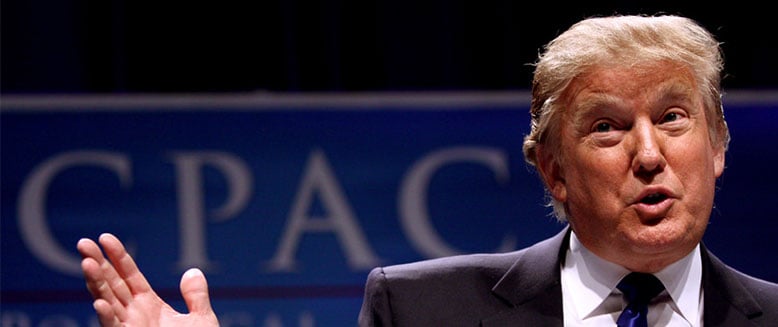Since 1999, deaths from opioid abuse have quadrupled across the United States, tearing through citizens of all classes of our society and waking up our politicians to a much bigger problem. It’s not just addiction that’s the problem – it is how we treat it.
In our recent election, candidates from both sides of the tickets put the shortcomings of our nation’s 30-year failed drug war into the spotlight and proposed improvements in addiction treatment across all sections of the country.
Many presidents before have promised to fight this issue and bring us relief, leaving us to ask:
“How will Donald Trump make any difference?”
Opinion on Drug Policy
In 1990, Donald Trump said the U.S. policy was “a joke”:
“We’re losing badly the war on drugs. You have to legalize drugs to win that war. You have to take the profit away from these drug czars.”
The president has noticed the obvious flaws of the old “tough love” approach. On a familial level, it seems like an obvious choice when your loved one won’t stop doing something that is killing them. Unfortunately, when this was performed on a national level, over and over again, it resulted in trillions of dollars wasted on a policy that fueled the stigma of seeking help for addiction and contributed to a massively overpopulated prison system.
Opinion on Addiction
Trump has shared openly about this older brother’s alcoholism and how it eventually led to his early death at 43. It certainly made a big impression on him and he has been cited emphasizing how addiction does not discriminate. It does care about your paycheck, who you love or where you’re from. In regards to his brother, Trump stated:
“My brother Fred was a great guy. He had everything. I mean, the most handsome guy, and then he got hooked — and there was nothing, there was nothing we could do about it.”
Unfortunately for many families, coming to this realization typically happens after the fact. Sometimes it takes witnessing a loved one spiral out of control or losing them to addiction to wake us up to the fact that this affliction isn’t a mental flaw, but a deep-seated disease that can’t be punished away.
As his own habits go, Trump claims he doesn’t do drugs, doesn’t drink, doesn’t smoke cigarettes and rarely even drinks coffee. That’s a far cry from most presidential hopefuls. His children can even attest, stating that “growing up the rules were “no drugs, no drinking and no smoking cigarettes”.
Prevention and Cutting Down on Supply
President Trump wants to cut off shipping loopholes in the postal services to prevent the shipment of illegal drugs into the United States. These were recently used in excess by Chinese manufacturers for bringing large amounts of fentanyl into the country, sparking a large wave of counterfeit pill production and opiate overdoses across the United States.
This is reinforced by his plan to build a wall across the Mexican border, in attempts to keep out dangerous cartels and illegal drugs from crossing into the U.S, which seems reminiscent of the same drug war policy he once criticized.
Harm Reduction
Trump has indicated he would increase distribution of the overdose-reversal drug, Naloxone to first responders, giving more struggling addicts a second chance at recovery. This markets a more compassionate approach and helps to fight the stigma that has plagued our country for the better part of a century.
Improving Alternatives
Drug courts haves shown to be immensely effective in providing low-level drug offenders an alternative to incarceration, provided they follow the rules. These are implemented in every state and have shown a significant decrease in recidivism rates. Trump has noticed this trend, proposing that we expand its reach and provide more low-level drug offenders a second chance at a clean slate.
Obamacare Repeal Proposal
In the battle against the opioid epidemic, the Affordable Care Act emerged as the first line of defense to offer many suffering addicts a means to receive affordable healthcare and viable treatment options. In places like Kentucky, which has one of the country’s highest overdose death rates, 450,000 of the state’s poorest citizens became enrolled and treatment services for substance abuse for those beneficiaries increased over 700 percent.
During his campaign, Donald Trump proposed to repeal this measure, which could jeopardize public access to affordable treatment options in lower incomes hit hard by the opioid epidemic. Additionally, many insurance companies would have to cut down on their coverage for addiction and mental health treatment options.
So What’s Next?
Trump’s views on treating addiction appear conflicted, going back and forth between supporting the “tough love” way of doing things which proved to be very ineffective and more progressive views that support a compassionate approach.
Regardless of where you lean politically, many politicians across the board recognize the tragic failings of our old approach and pushing for some serious changes to be made. Only time will tell if the President sticks to his promises and makes this issue a top priority.










